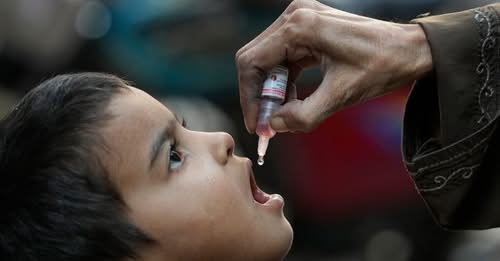Declining Childhood Vaccination Rates Expose Millions to Preventable Diseases, WHO and UNICEF Warn
Over 30 million children were not fully vaccinated against MMR in 2024, according to WHO and UNICEF. Experts warn of widening immunity gaps and rising outbreaks of preventable diseases.

Routine MMR vaccination fell short for over 30 million children in 2024, an alarming gap fuelling the resurgence of preventable diseases worldwide. Photo: @cbtuck62
July 15, 2025 Hour: 2:20 am
A worldwide drop in routine childhood vaccinations has left more than 30 million children exposed to diseases like measles and rubella, according to WHO and UNICEF. The trend, affecting both high-income and low-income countries, is fueling a global resurgence of preventable illnesses.
RELATED:
RSF Attacks Kill Nearly 300 Civilians in North Kordofan, Sudan
New data from the World Health Organization (WHO) and UNICEF reveal that over 30 million children were not fully immunised against measles, mumps, and rubella (MMR) in 2024, while 14.3 million children received no routine infant vaccinations at all.
While global measles coverage improved slightly, reaching 2 million more children than in 2023, vaccination rates have stalled or declined in many regions, undermining herd immunity and increasing the risk of outbreaks.
In Europe and Central Asia, MMR coverage dropped by an average of one percentage point compared to 2019 levels. In 2024, more than half of the 53 countries in the region failed to meet the 95 percent threshold required to interrupt measles transmission. Nearly one-third reported coverage below 90 percent, with Montenegro recording the lowest rate at just 23 percent for the first MMR dose. Globally, seven countries reported coverage below 50 percent.
Among G7 nations, the United Kingdom ranked lowest, with only 89 percent of children receiving their first MMR shot in 2024. By contrast, Germany reached 96 percent, France, Italy, and Japan 95 percent, and both the United States and Canada 92 percent.
Measles cases are on the rise globally. WHO and UNICEF estimate around 10 million cases and more than 100,000 deaths occurred in 2023. The number of countries experiencing large and disruptive outbreaks nearly doubled, from 33 in 2022 to 60 in 2024. In Europe, cases doubled, while the United States reported its highest number of measles cases in three years.
Ephrem Tekle Lemango, UNICEF’s Chief of Immunisation, stated: “In 2024 alone, over 20 million children globally missed their first measles dose and nearly 12 million missed their second – leaving dangerous immunity gaps that continue to fuel outbreaks.”
He added: “Even small declines in coverage, especially in communities affected by conflict, displacement or weak health systems, can trigger devastating surges. To protect every child, we need to reach 95 percent coverage with two doses in every district, in every country.”
The consequences of declining coverage are particularly severe in regions where healthcare systems are already under strain due to economic inequality, political instability or conflict, which are common challenges in many parts of the Global South.
Vaccination coverage for other preventable childhood diseases also remains below pre-pandemic levels. In 2024, 115 million infants, representing 89 percent, received at least one dose of the diphtheria, tetanus, and pertussis (DTP) vaccine, while 85 percent received all three doses. Polio and hepatitis B coverage dropped to 93 percent and 91 percent respectively.
Dr. Hans Kluge, WHO Regional Director for Europe, warned: “Last year alone, nearly 300,000 people got whooping cough in our region, more than a threefold increase on the previous year. Meanwhile, over 125,000 caught measles in 2024, twice as many as 2023. These are not just numbers, it’s hundreds of thousands of families in anguish because their children are sick, and it could have been prevented.”
He added: “Vaccines save lives, and when coverage drops, disease spreads. That’s why countries must invest in strong local health systems, ensure vaccines are available and accessible in every neighbourhood, and fight misinformation.”
Sabrina Bacci, from the European Centre for Disease Prevention and Control, highlighted the broader impact of immunisation: “Vaccination is not only an act of self-protection but one of solidarity at the same time, and one which offers both immediate and long-term benefits.”
The growing number of under-immunised children and increasing outbreaks signal a critical global health challenge. Without stronger coordination to rebuild and expand immunisation programs, particularly in fragile or underserved health systems, millions of children will remain at risk from diseases that are entirely preventable with existing vaccines.
Author: MK
Source: The Guardian



